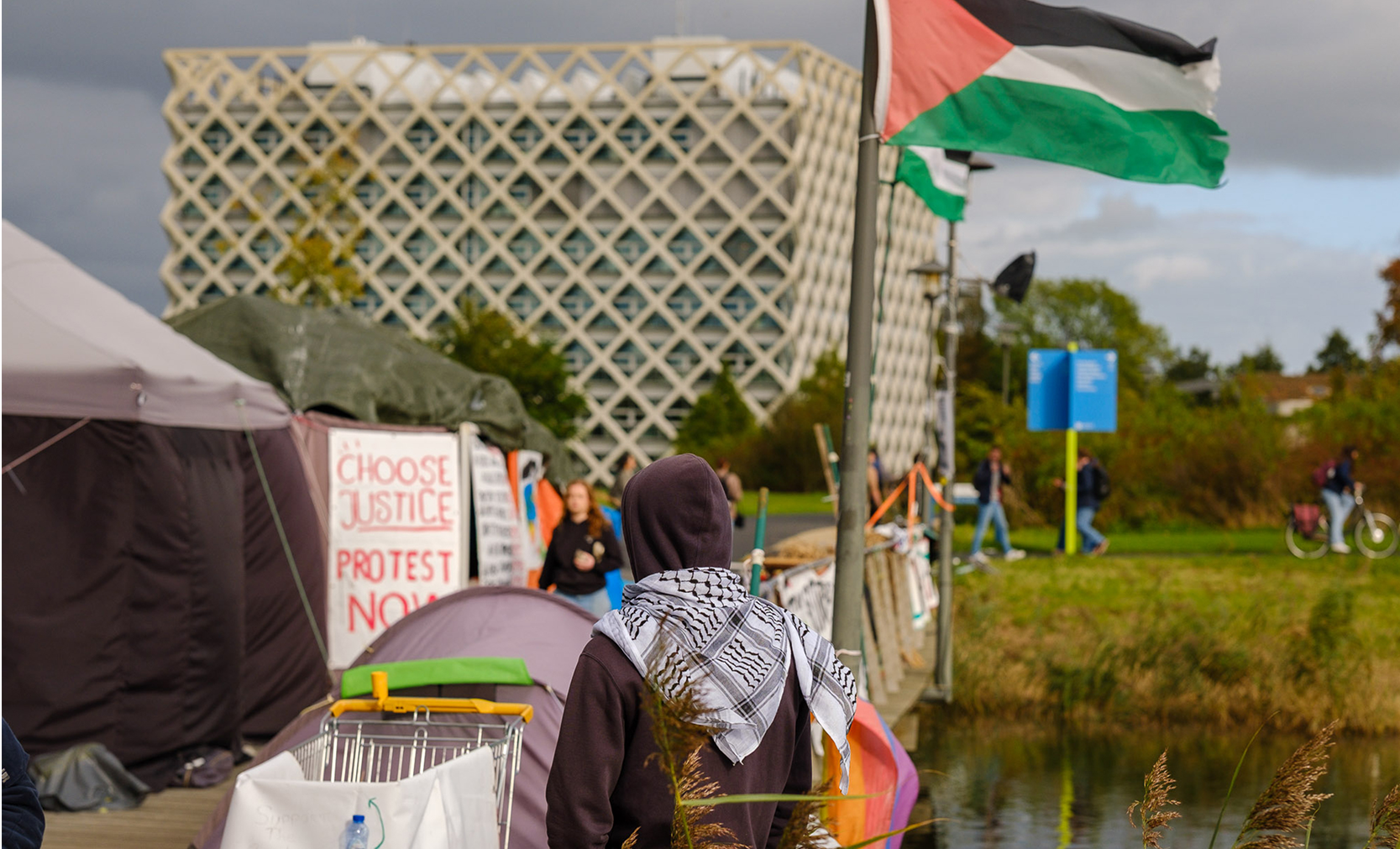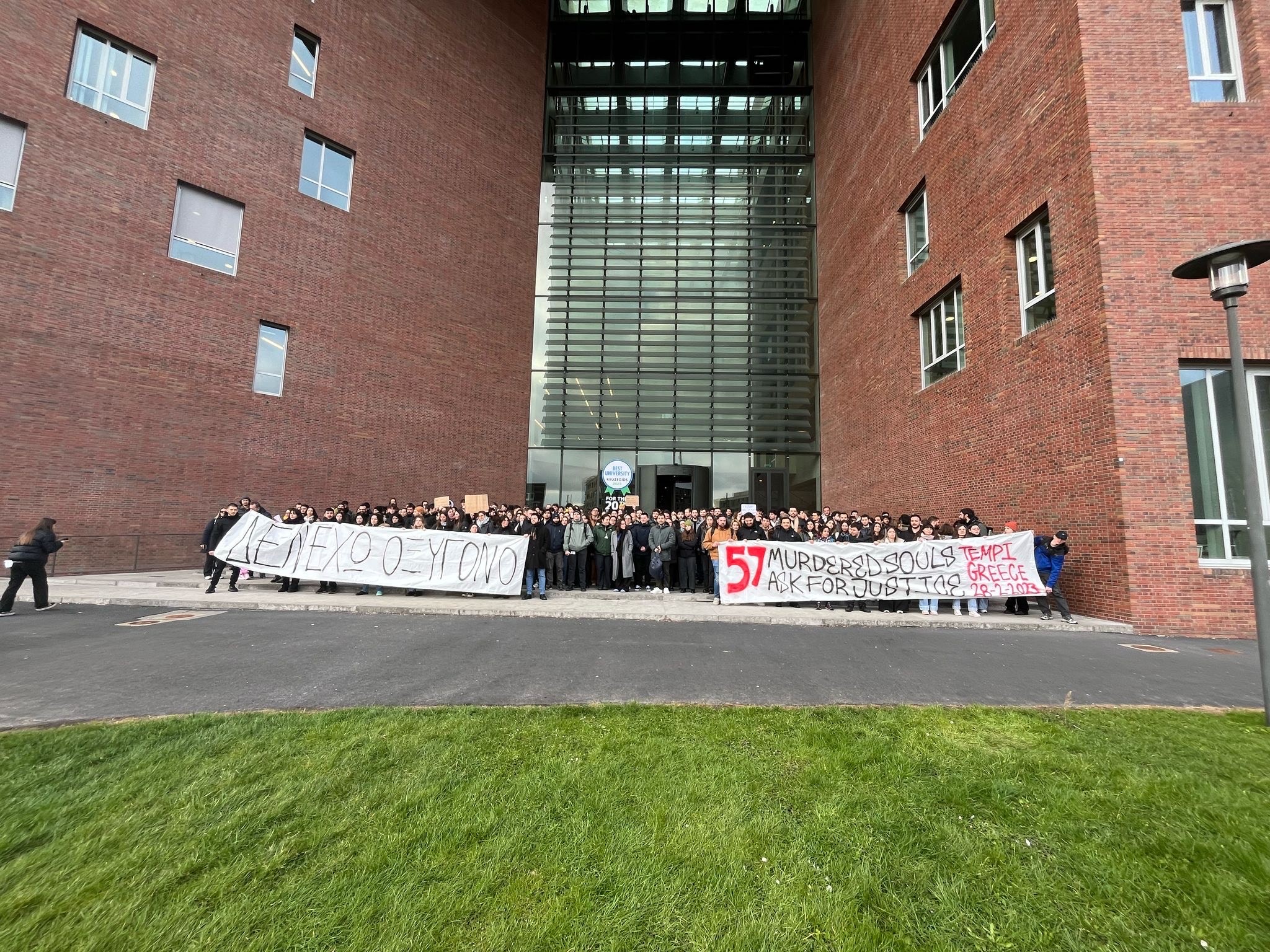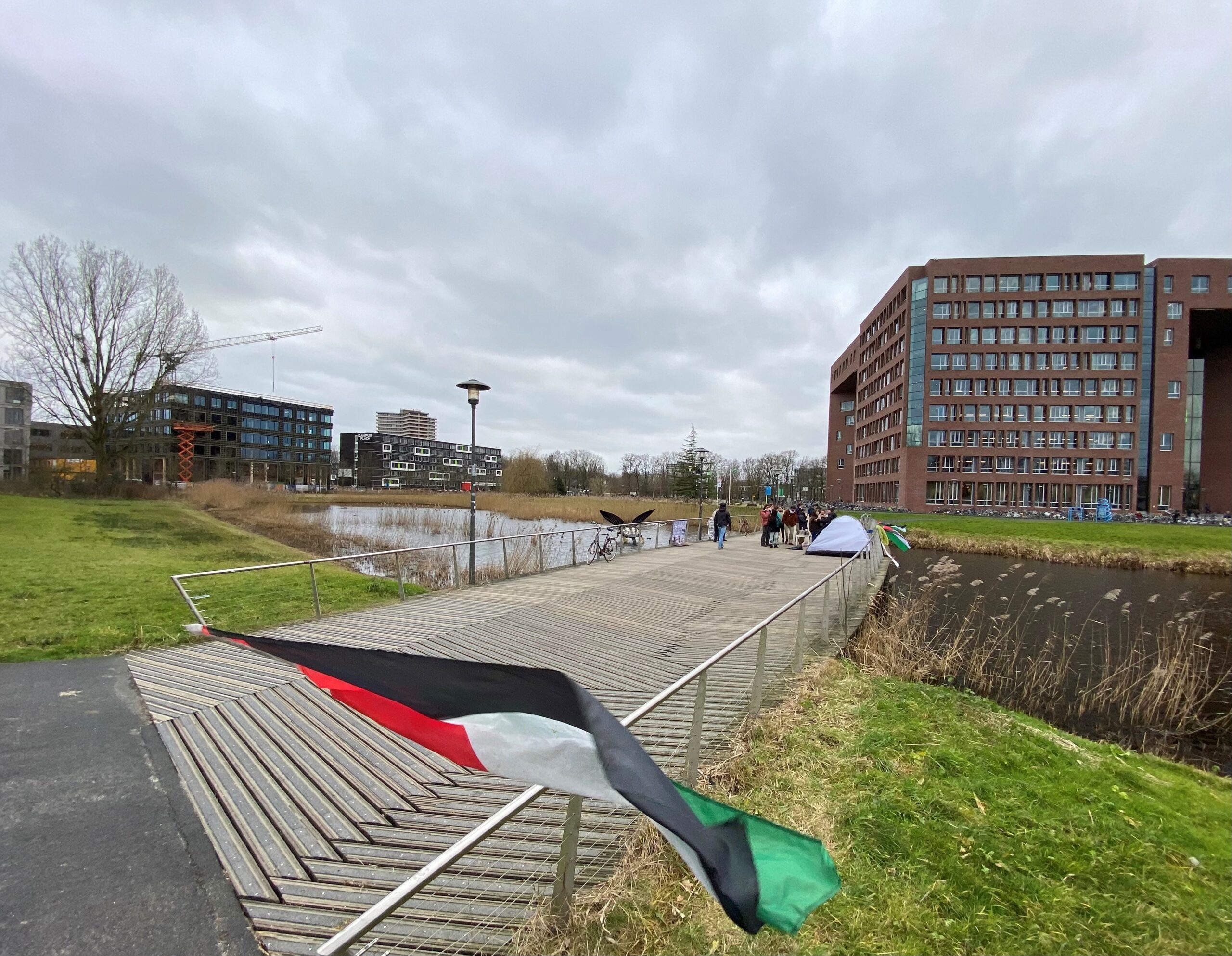Activists have been occupying the bridge between the Forum and Orion for over 150 days now. They demand that WUR publicly cuts all ties with Israeli institutions. What inspires them to keep going? A conversation with a bridge activist who was there from the start: Matijn, a Master’s student of Biology.
‘When we launched this campaign in May and set up our tented camp, it was by far the most important thing in my life at that time. I put quite a lot of things on hold in order to focus on that: my studies, my job, and my social life. Luckily, I could plan my internship and thesis flexibly. But of course, such an intensive period has consequences: I will take longer to graduate, and I will incur more costs. I accept that. I am currently working on my final thesis, as you can’t earn your living from activism. Everyone in our camp is doing this alongside their studies or job.
‘It is tricky to find the right balance between campaigning as hard as possible and taking breaks to recharge your batteries. Knowing that the Israeli army is murdering dozens to hundreds of innocent people every day in Palestine, and now in Lebanon too, makes it feel wrong to relax, and easily makes you feel guilty. After all, I could have used that time to help, couldn’t I? That inner conflict makes activists vulnerable to burnouts. We talk about that in our group: if someone gets burnout, we won’t achieve our goal.’
Of course there are consequences: I will take longer to graduate, and incur more costs. I accept that
‘At the start, we held regular film and games evenings, and there were communal meals every evening for big groups. After more than 150 days of campaigning, most people don’t have the energy for that anymore. We sleep out of doors on the bridge, the lights stay on at night, and there have been many difficulties. We had a lot of storms, rain and cold temperatures this summer. The camp collapsed a couple of times and there were leaks. And now it’s getting colder. It definitely isn’t a camping holiday.’
Civil disobedience
‘And yet I believe what we are doing is worthwhile and I think the approach we’ve taken is justifiable. I looked into the history of activism, and civil disobedience has been an effective way of bringing about change for thousands of years. In the context of the Israeli occupation of Palestine and the genocide of the indigenous population going on there, a bit of civil disobedience here on the campus is justifiable. By continuing to collaborate with Israeli institutions, our university contributes in a subtle but significant way to the continued suffering.’
I believe what we are doing is worthwhile and I think our approach is justifiable
‘But activism or protest is a long-haul job. Because after an – often stressful – campaign, you usually have no idea whether it has made any difference. That is frustrating, that you have put so much energy into something without seeing any immediate results. But I do think it has an impact in the end.’
High points
‘On 6 May, the Israeli army began the invasion of Rafah. The situation was acute and camps were set up throughout the Netherlands to protest against institutional links with universities in Israel. I am enormously proud of the fact that our Wageningen movement managed to set up our camp within a week, with the help of over 100 students, staff and Wageningen citizens. Another high point was the public debate we organized, at which we had invited the Executive Board to publicly defend their position. In the end the board didn’t show up (no surprise), but it was a very interesting evening with a diverse group of people – including people who didn’t agree with us.
‘The occupation of the access roads to the campus was a high point for me personally. Just before we carried it out, I was very nervous. We knew the situation would get tense, and that onlookers could get angry or aggressive, and we could be exposed to police violence. We had prepared well by talking about how we could de-escalate the situation if tension rose. And there were indeed some tense moments, but fortunately it went well. And we got a lot of support and encouragement from passers-by.’
Stereotype
‘The stereotypical image is that activists are lazy and unemployed. But why would “lazy” people devote hours or days of their time to organizing and implementing protests? I don’t think many people realize that you don’t do this for the hell of it, and you don’t block a road and risk police violence for fun. You put yourself in a dangerous position without any reward. My motivation to do this is intrinsic. I want to make a contribution to positive social change. History shows clearly that activism is an extremely effective way of achieving that.’

 Activist Matijn at the camp on the bridge near the Forum. Photo Guy Ackermans
Activist Matijn at the camp on the bridge near the Forum. Photo Guy Ackermans 

